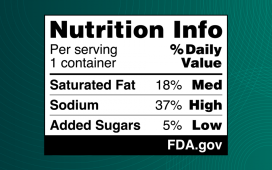Extreme temperatures linked to increased CV mortality and morbidity; extreme weather events linked to persistent CV risk
By Elana Gotkine HealthDay Reporter
THURSDAY, June 13, 2024 (HealthDay News) — Several climate change-related environmental stressors are associated with increased cardiovascular risk, according to a review published online June 12 in JAMA Cardiology.
Dhruv S. Kazi, M.D., from Beth Israel Deaconess Medical Center in Boston, and colleagues reviewed the current evidence on the association between climate change-related environmental stressors and adverse cardiovascular outcomes.
A total of 492 observational studies met the inclusion criteria: 182, 210, 45, and 63 examined extreme temperature; ground-level ozone; wildfire smoke; and extreme weather events, including hurricanes, dust storms, and droughts, respectively. The researchers found that the studies presented findings from 30, 17, and one high-, middle-, and low-income countries, respectively. The strength of evidence was rated as sufficient for extreme temperature; ground-level ozone; tropical storms, hurricanes, and cyclones; and dust storms; limited for wildfire smoke; and inadequate for drought and mudslides. Increased cardiovascular mortality and morbidity were seen in association with exposure to extreme temperature, with the magnitude varying with temperature and duration of exposure. The risk associated with higher temperature was amplified with ground-level ozone, and vice-versa. Increased cardiovascular risk that persisted for many months after the initial event was seen in association with extreme weather events, such as hurricanes. After exposure to wildfire smoke, some studies noted a small increase in cardiovascular mortality, out-of-hospital cardiac arrests, and hospitalizations for ischemic heart disease; other studies revealed no associations.
“Continued gains in cardiovascular health require urgent action to identify and implement cost-effective interventions to reduce climate change-associated cardiovascular disease risk, particularly in vulnerable populations,” the authors write.
One author disclosed ties to the pharmaceutical industry.
Copyright © 2024 HealthDay. All rights reserved.








